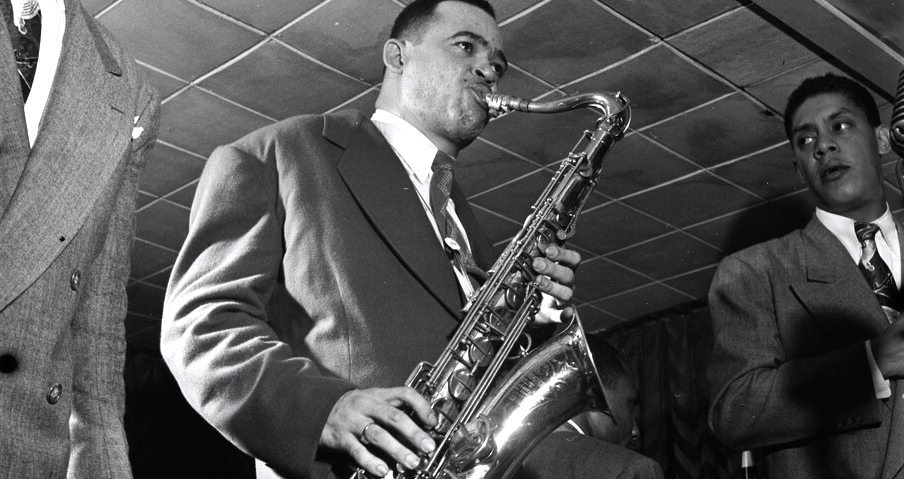

A stomping Texas tenor player in the tradition of Illinois Jacquet, very robust and sometimes raw, who mixes the musical vocabularies of swing, bebop, blues and Rhythm and Blues, and originator of the “Open Prairie” tone and “Southern Preacher” style of playing.
Arnett Cobb has that honking, bar-walking saxophone sound that used to blast from jukeboxes coast-to-coast. There was always excitement elicited by Cobb’s uninhibited, blasting style which earned him the label “Wild Man of the Tenor Sax.”
Cobb was a prolific showman, writer, stylist, arranger, and tenor saxophone technician. His saxophone technique and music style directly influenced Illinois Jacquet, Gene Ammons, Johnny Griffin, Houston Person, Sonny Stitt, Stanley Turrentine, King Curtis, Eddie “Lockjaw” Davis, Rahsaan Roland Kirk, and a generation of musicians in jazz, swing, R&B, soul, and funk music.
Between 1950 and 1956, Cobb produced a string of hits including “Jumpin’ the Blues,” “Lil Sonny,” “The Shy One,” and “Smooth Sailing”. His combos and support became a career-building platform for Red Garland, George Rhodes, George Duvivier, Dinah Washington and Jackie Wilson.
Cobb spent most of the 1960s playing back in his native Texas but he returned to the national scene in 1973 and during his final 15 years engaged in many exciting tenor battles, showing that there were few tougher Texas tenors than the legendary Arnett Cobb.
Arnett always paid keen attention to his solos, and when given a theme, he had the sensitivity and innate ability to approach them with a deliberate simplicity and finish them off by blowing the roof off the place. Cobb was the ultimate performer and showman, giving the audiences everything they came to hear and more. No matter what concert or venue Arnett played, it was standing room only.
He described himself as a ”straight-ahead jazz player,” and he performed in nearly all the major jazz festivals around the world. ”I never got into be-bop or any of those other styles,” he said. ”I think you should stick with what you do best, no matter what line of work you’re in.”


